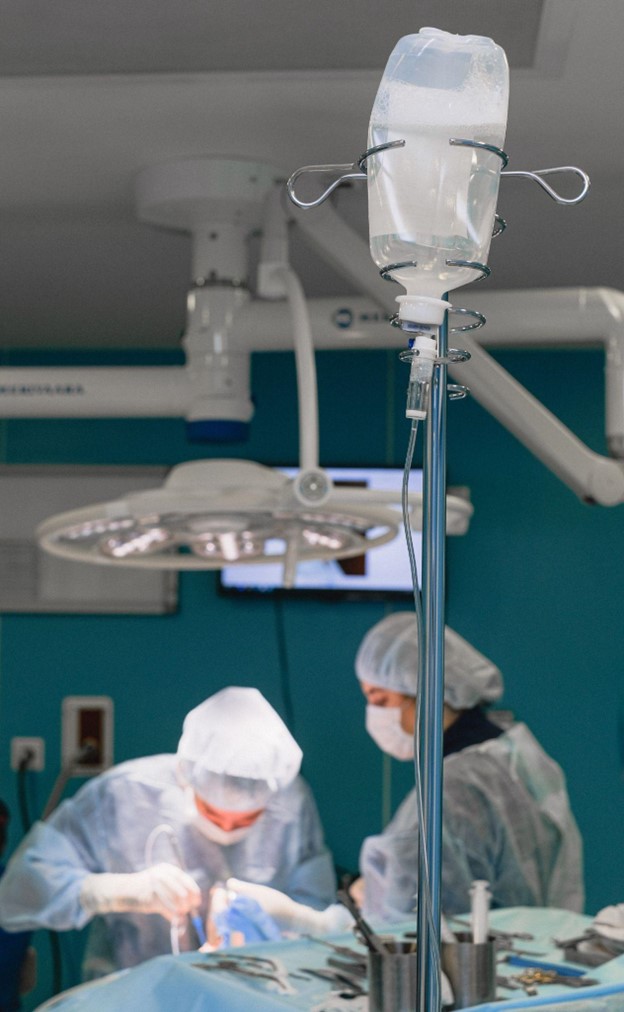
Beginner Guide To Operation Theatre Protocols
In order for an operating room to function properly and efficiently, two things are required. First and foremost, sterility is critical. All of the measures taken in operating rooms are aimed at preventing infection from occurring during the procedure itself. An infection can be a complication or even a death sentence in eye surgery.
In the event that chemicals or unsuitable irrigating solutions enter the eye during eye surgery, intraocular damage may occur. This is an additional risk associated with the procedure.
The second is teamwork. Surgery is not a one-man show, where the “surgeon” and a few others do what they’re told. It’s a team effort. All of us are involved in the process. Everyone on the team plays an equal role, despite the surgeon receiving more training.
In any case, the following procedures in the operating room must be followed:
Table of Contents
1. The Theatre Team
It is essential to have a sufficient number of enthusiastic and motivated employees. Because of their focus on surgery, they will have a deeper appreciation for the needs of the surgeon and the patient alike. When everyone on the theater crew is having fun and getting along, the work gets done faster and with fewer errors.
Leaders in the theater team should be responsible for organizing the work and ensuring that all of the routine tasks are completed on a regular basis. In this way, theatre work can be done safely and efficiently.
2. Be Vaccinated Against HB
All OT staff should have their medical histories checked. In case there is any doubt about whether or not they have been infected or immunized before, they should indeed be tested for antibodies to HBsAg.
All nonimmune healthcare workers (HCWs) should be vaccinated against HBV as soon as possible. They must be tested for antibodies to HBsAg three months after the third vaccine dose.
Some patients may need a fourth or even a third dose, depending on their antibody level. People who don’t respond should be told they need HBIG within 48 hours of getting HBV through a vein. The HBIG or HBV vaccine should not be avoided because of pregnancy.
For both the patient and the medical staff, each procedure should be considered a potential source of infection. Regardless of the patient’s actual or presumed serological status, the medical staff should always consider every patient to be a possible source of infection (particularly HBV, HCV, and HIV) for themselves.
3. Cleaning
The day of surgery and the days leading up to it should be taken up with preoperative cleaning. All rooms that are used as part of the operating theater suite need to have their floors, and sometimes their walls and ceilings, cleaned.
To prevent the buildup of dust, all furniture, including instrument tables, operating tables, and cabinets, must be wiped down.
The sooner blood or other debris is cleaned up, the easier it will be to remove it later. Also, it is important to make sure instruments and glassware dealing with blood must be sterilized. Whether it is glass flask, test tubes, or collection tubes by an expert blood collection tube manufacturer, cleanliness is the key.
The HIV virus can be killed by a weak solution of bleach, which is sufficient for cleaning purposes. To avoid infection, those who wash drapes, as well as surgical instruments, must wear gloves.
4. Double Gloving
Compared to single gloves, double gloving reduces the risk of transmission of HBV/HCV to the surgeon by 10% more.
HBV and HCV have been passed from surgeon to patient and back without breaks in technique and with gloves that seemed to be in good shape. It is possible for even the best latex rubber surgical gloves to leak, while those that have been exposed to fat in wounds gradually lose their integrity.
When it comes to protecting yourself from cuts and splinters, wearing two pairs of gloves isn’t much use. Rather, wear the best quality surgical gloves by a reputable surgicare gloves manufacturer.
5. Restrict Number And Free Roaming Of Employees
Limit the number of employees and their freedom of movement. Only those who are absolutely necessary for a given task should be present at all times. As a result, the bacterial population will be drastically reduced.
6. Maintenance Of A Building
It should go without saying that a safe operating environment necessitates a solid structure. In addition to purpose-built operating theatres, a wide range of buildings can be used to perform eye surgery.
On the other hand, the room should be as well ventilated and insect-proof as possible. If there’s any furniture piece in the room for short breaks, such as an armchair for senior surgeons by a top fabric armchairs factory, it must be inspected and cleaned regularly.
Even if the windows aren’t completely blacked out, they should be shaded. The paint should be in good condition, and a steady water supply is available.
During the surgical procedure, the room should have doors one can shut. It’s critical to conduct regular checks of the insect barrier.
7. Equipment And Instrumentation Upkeep And Repair
Regular maintenance is essential if the equipment is to continue working properly. For example, sterilizers, operating lights, and air conditioners require a schedule.
The importance of having spares on hand to allow for quick local repairs cannot be overstated. Surgical instruments must be thoroughly inspected and maintained to ensure they are safe to use.
Conclusion
In many cases, it is impossible to strictly adhere to the correct theater procedures because there is either excessive surgical work or financial constraints. A complete change of clothing is required for everyone who enters the operating room in accordance with proper theatre procedures.
In between each case, everyone in the operating room changes into new gloves and a new gown. It is possible that these standards will not always be met but for the majority of time, above criteria is important.


